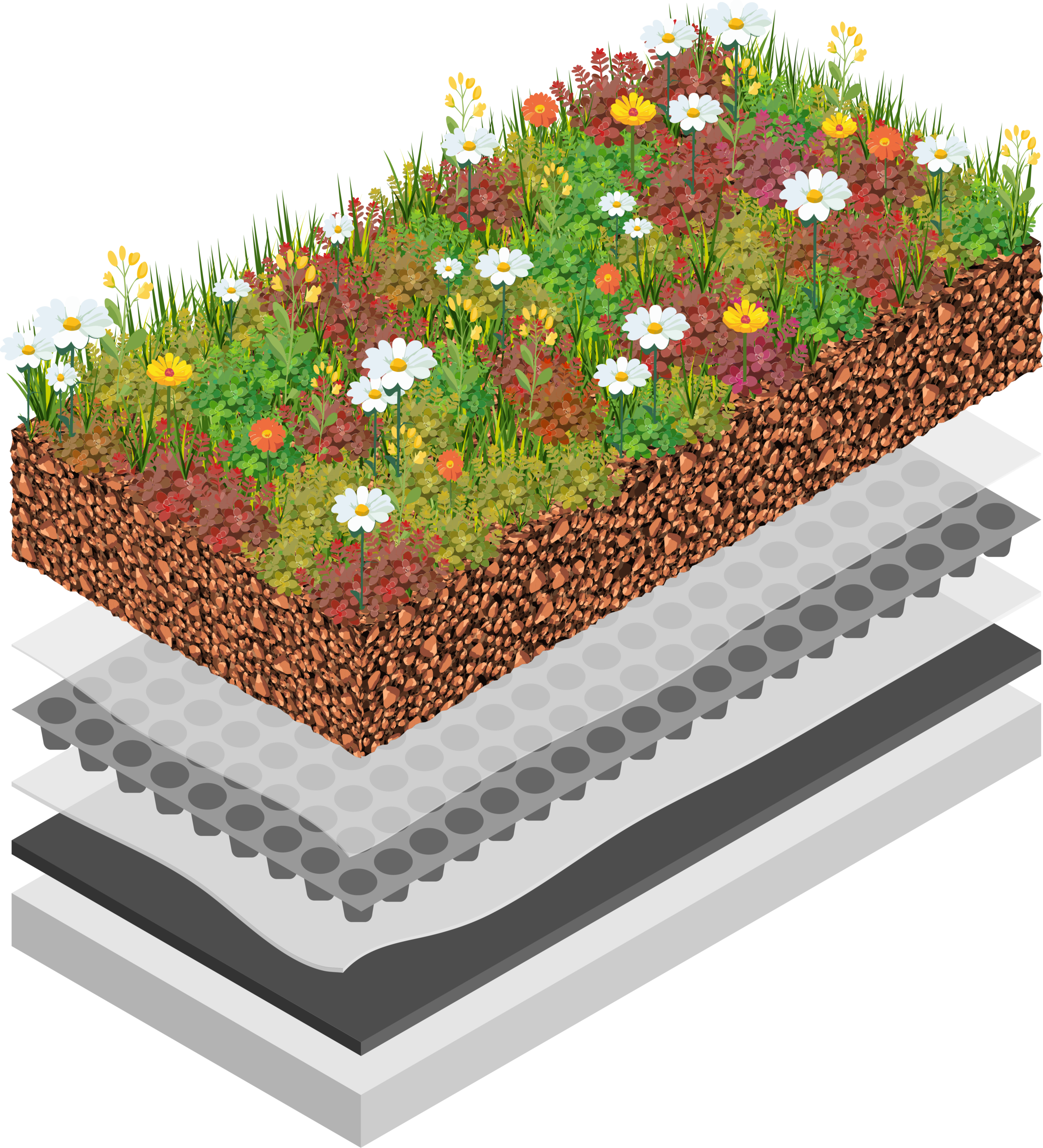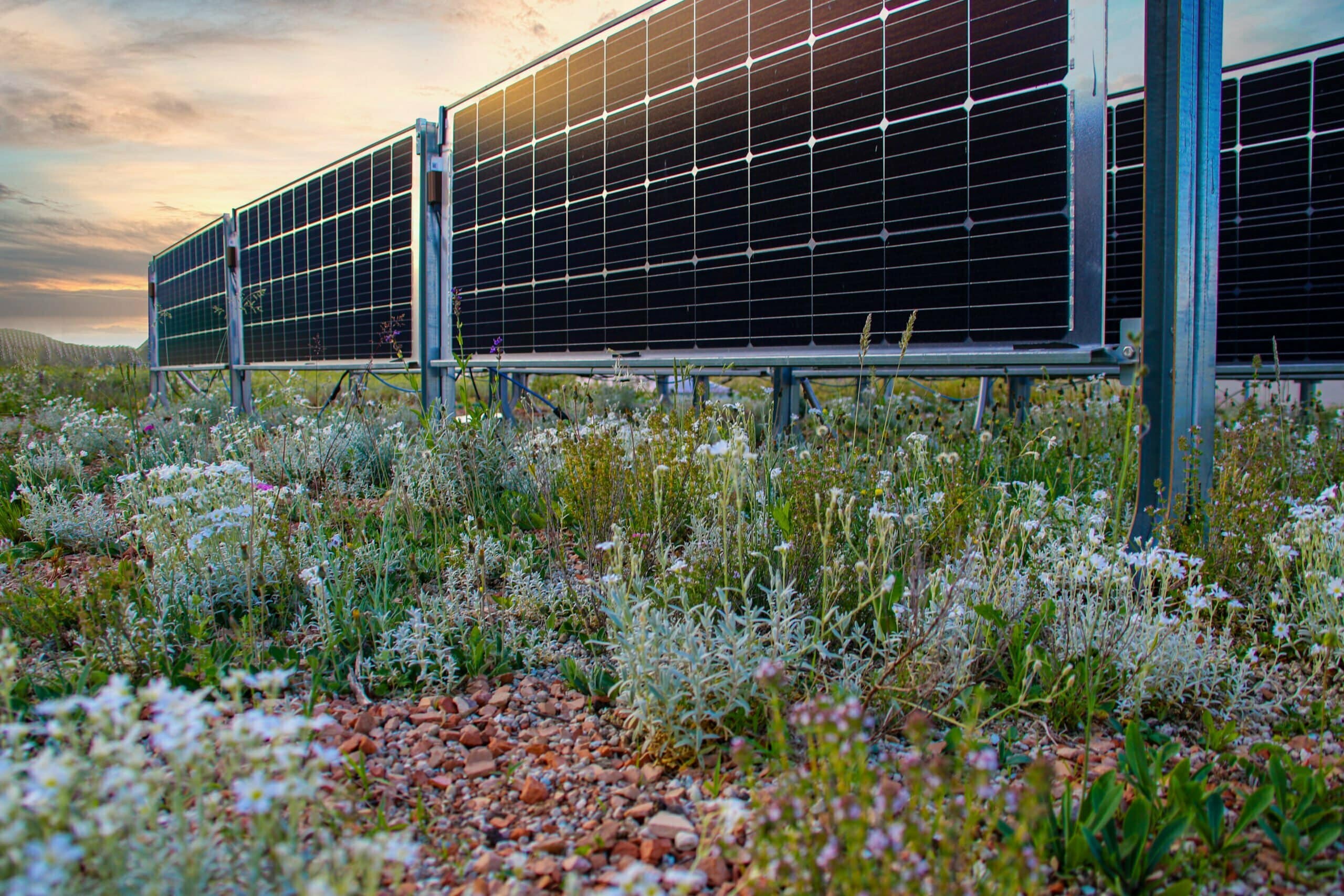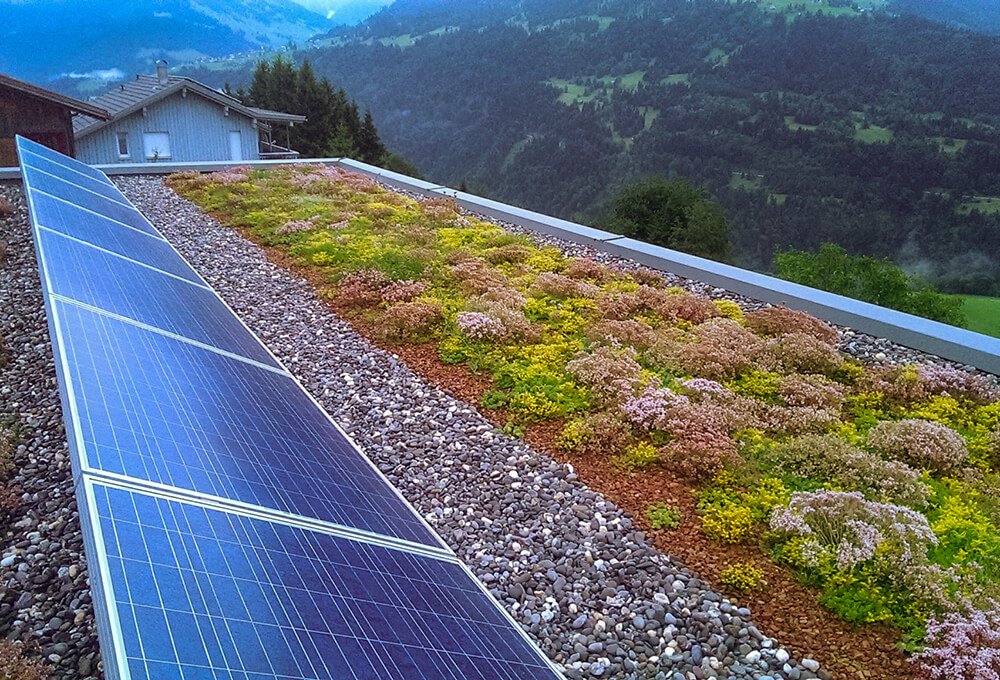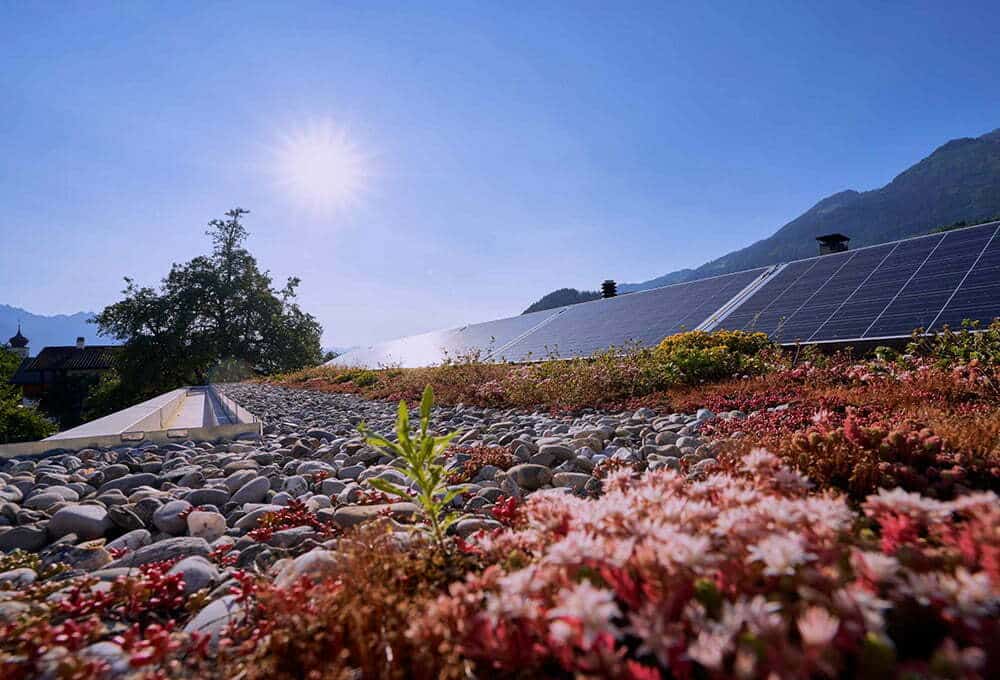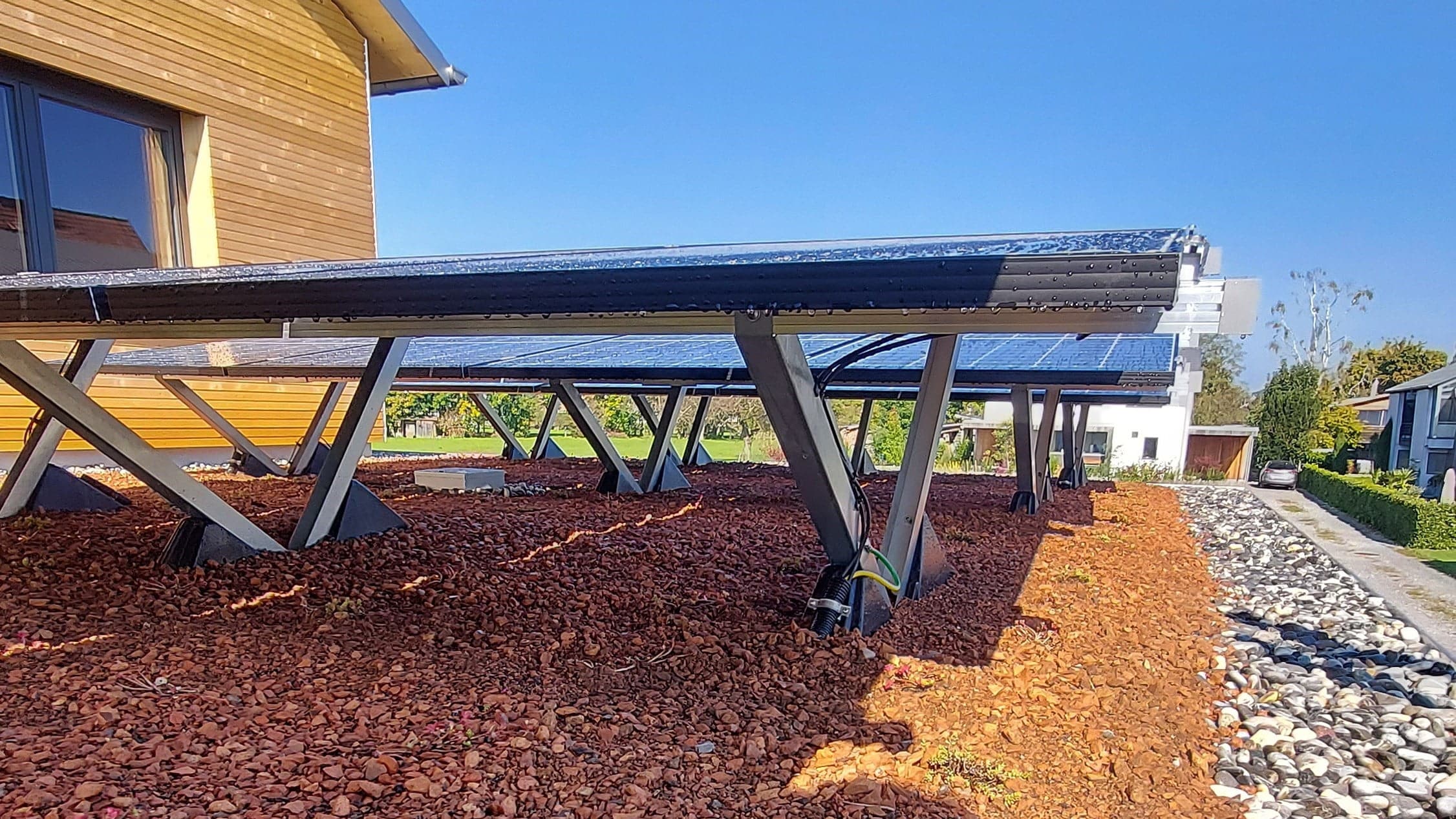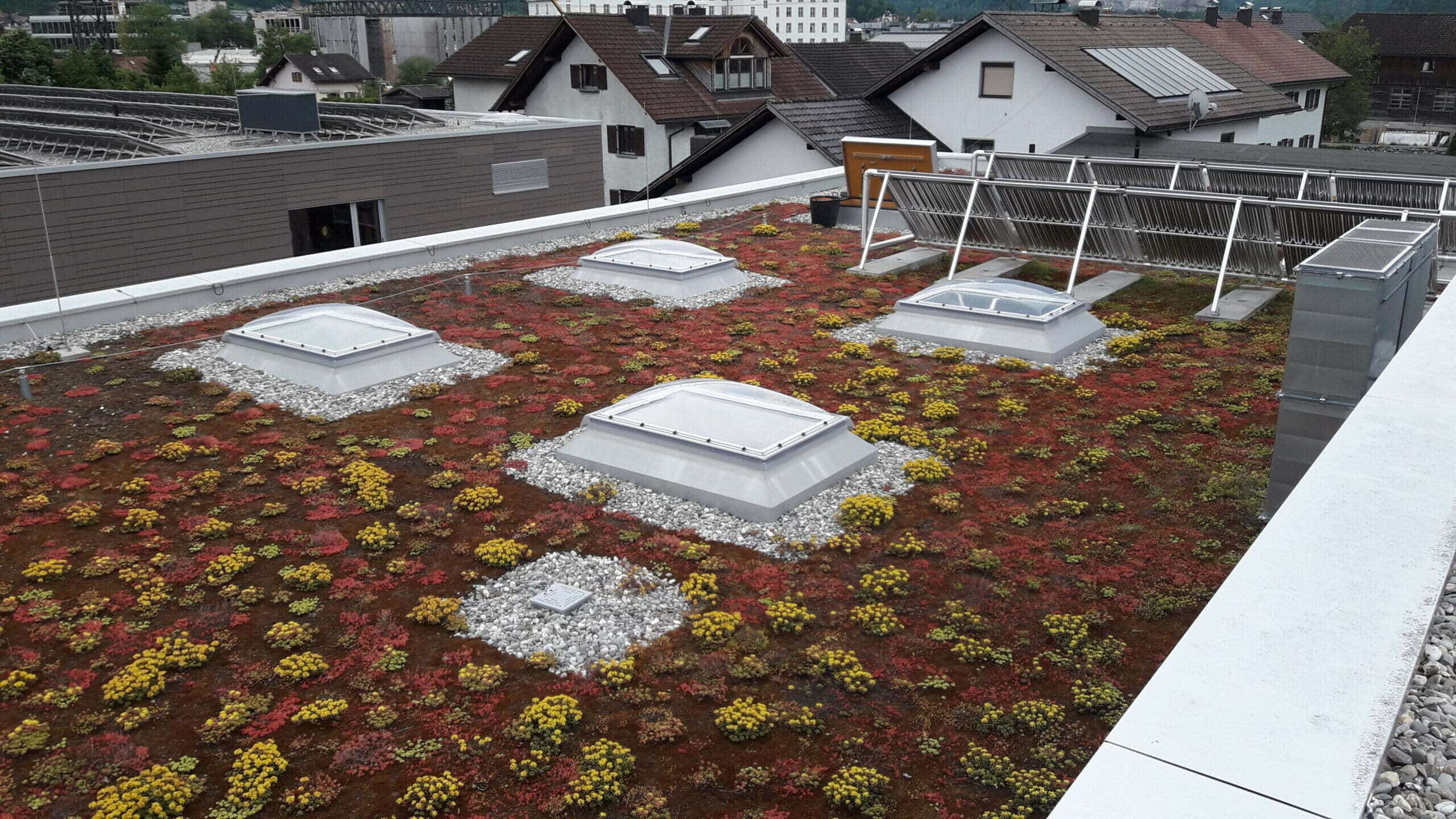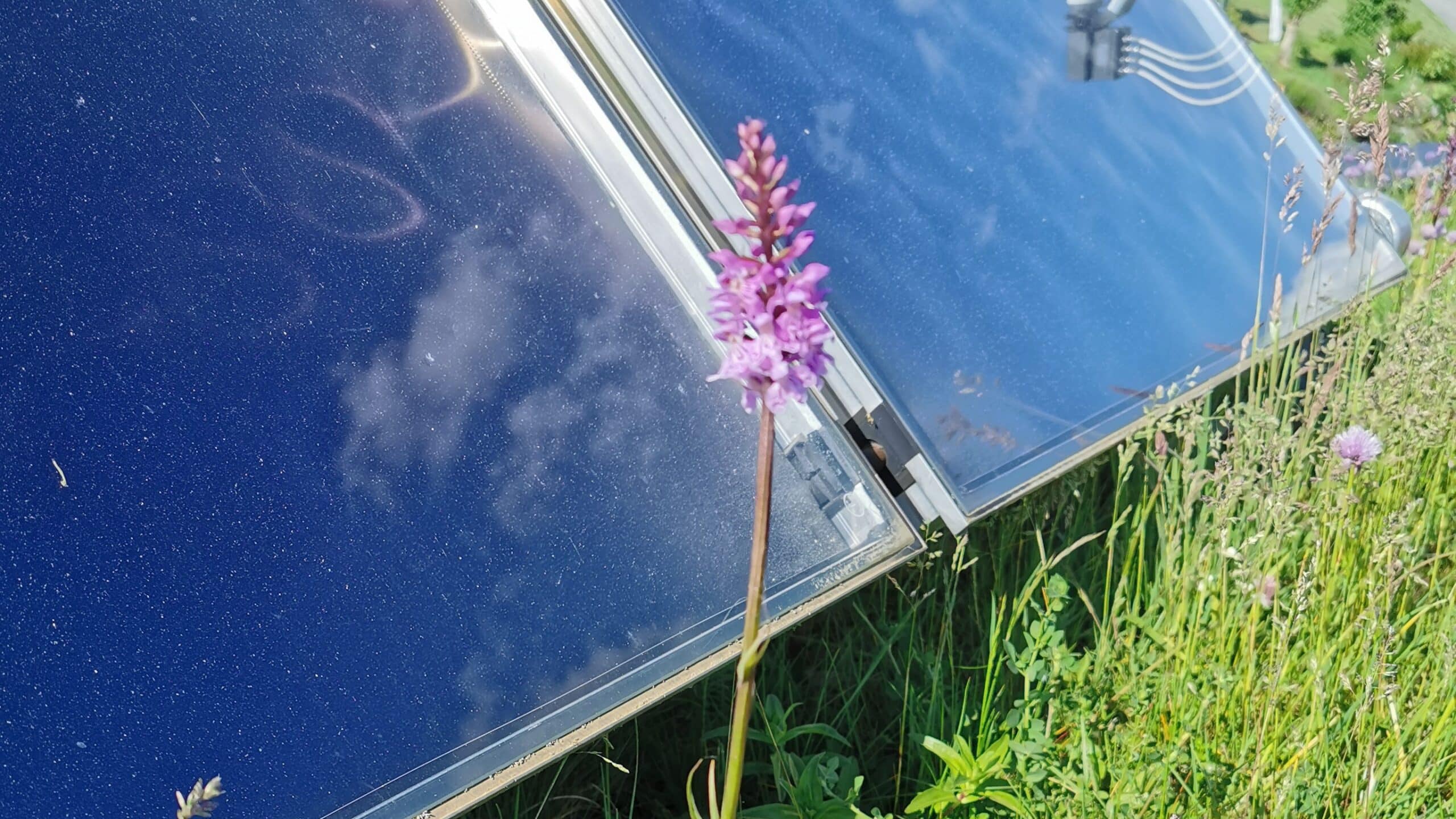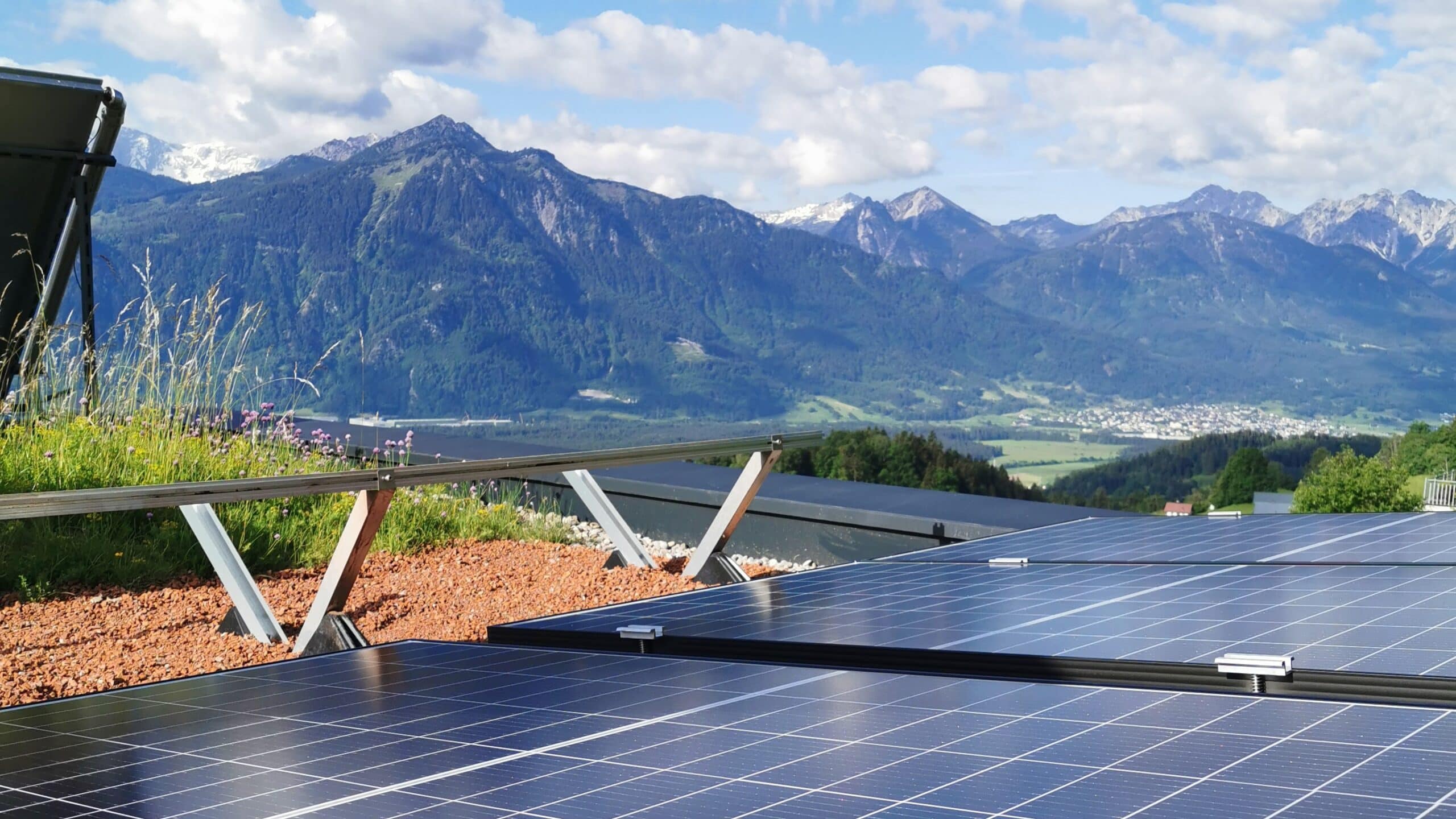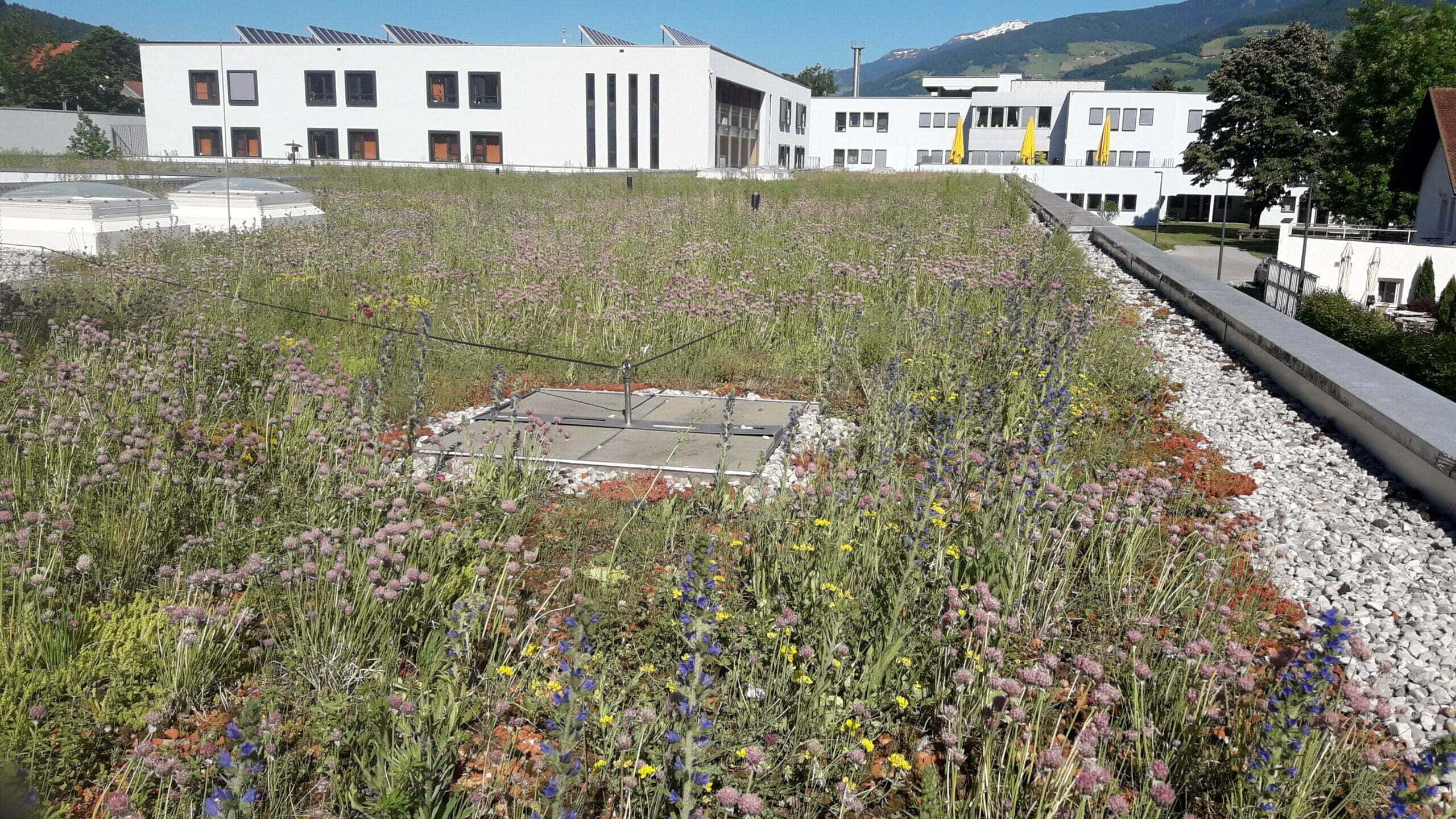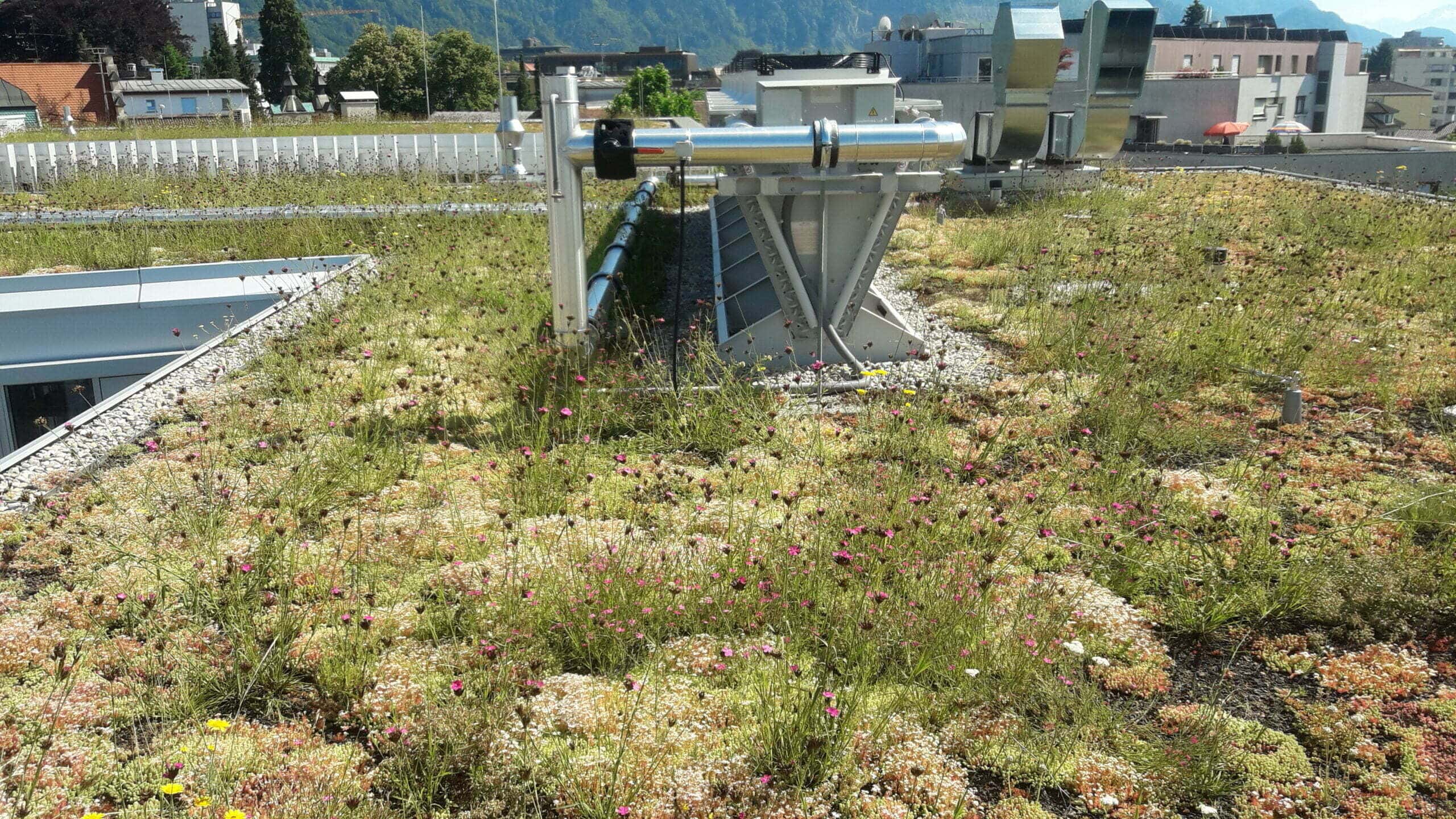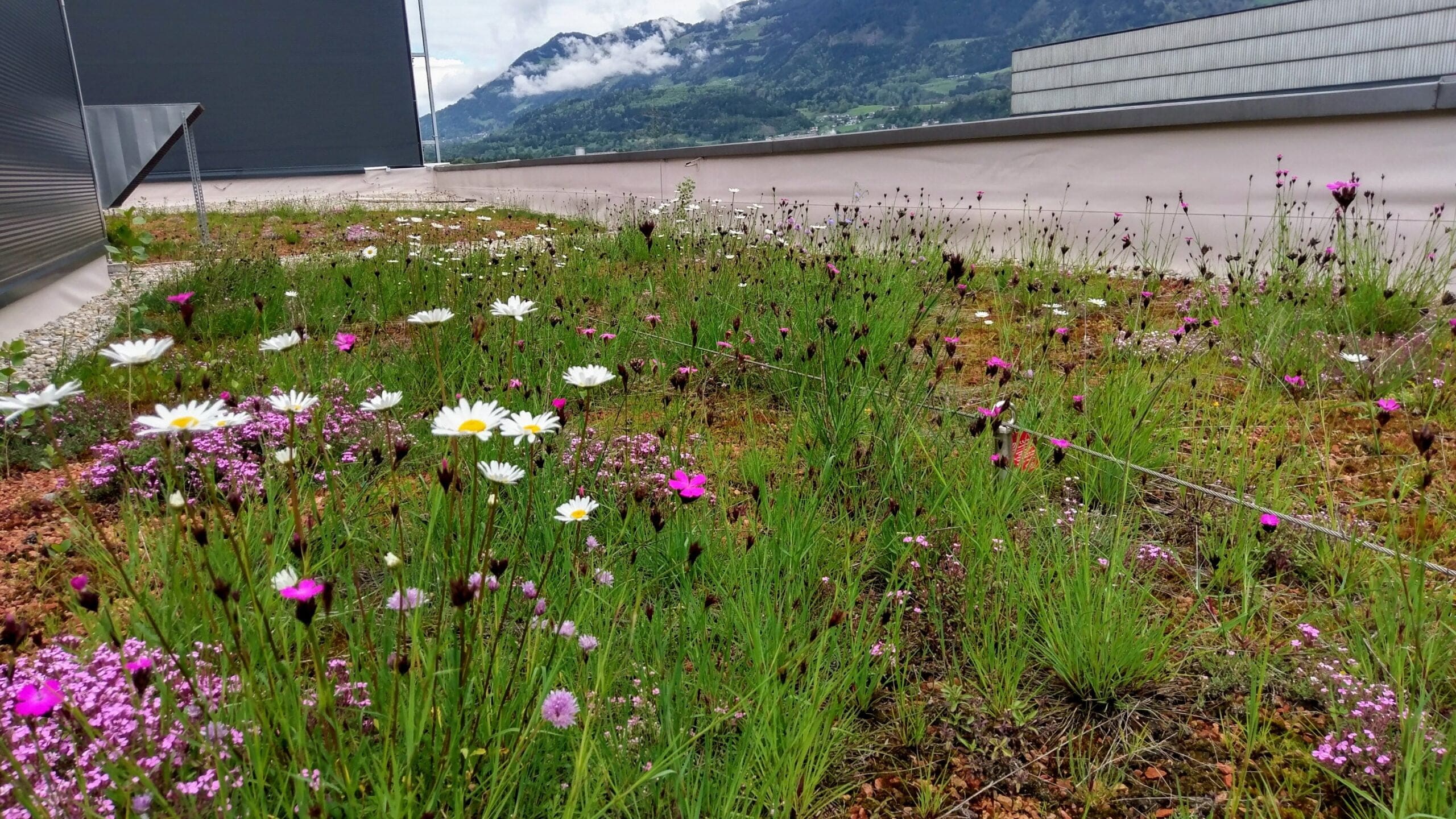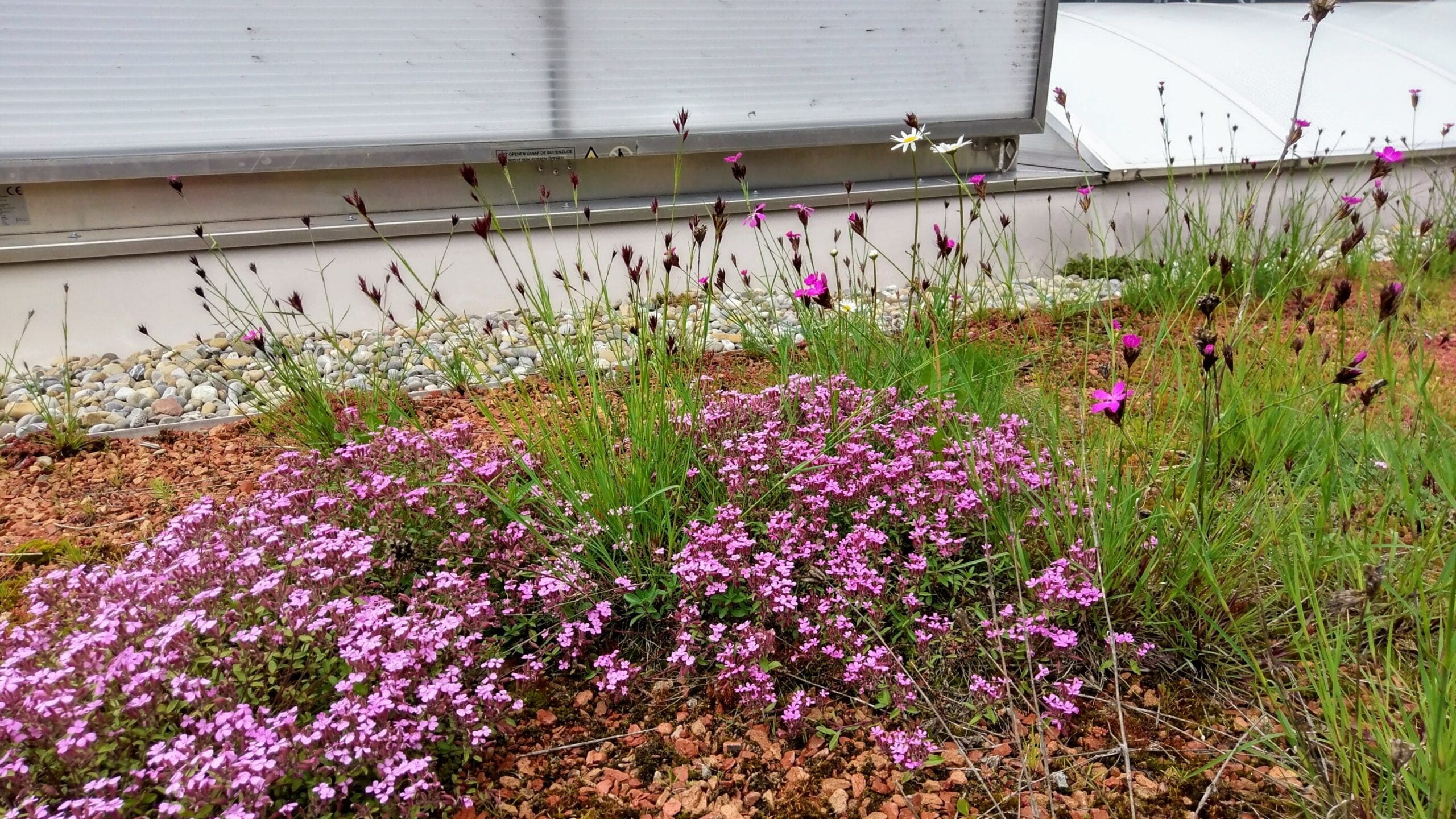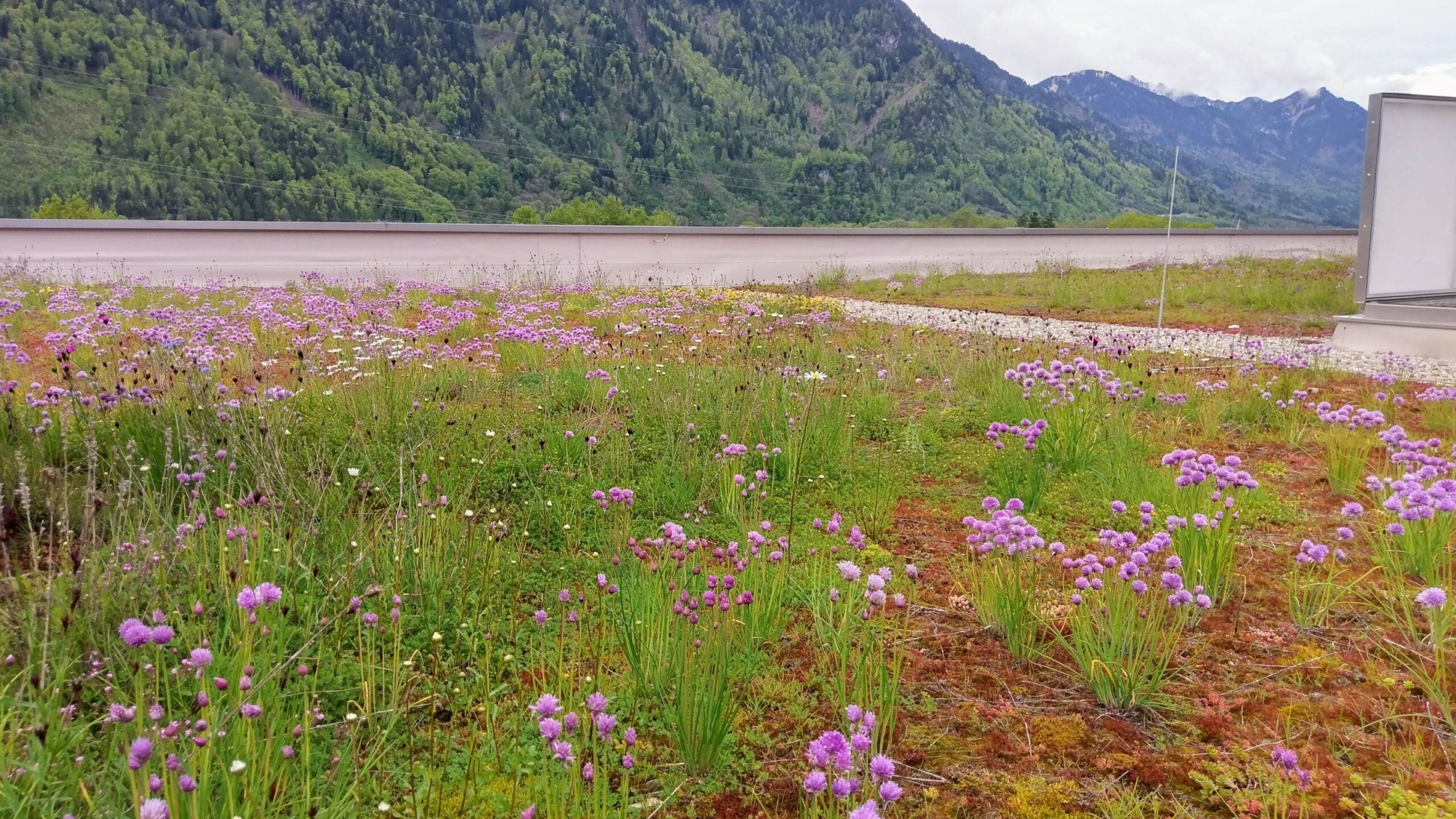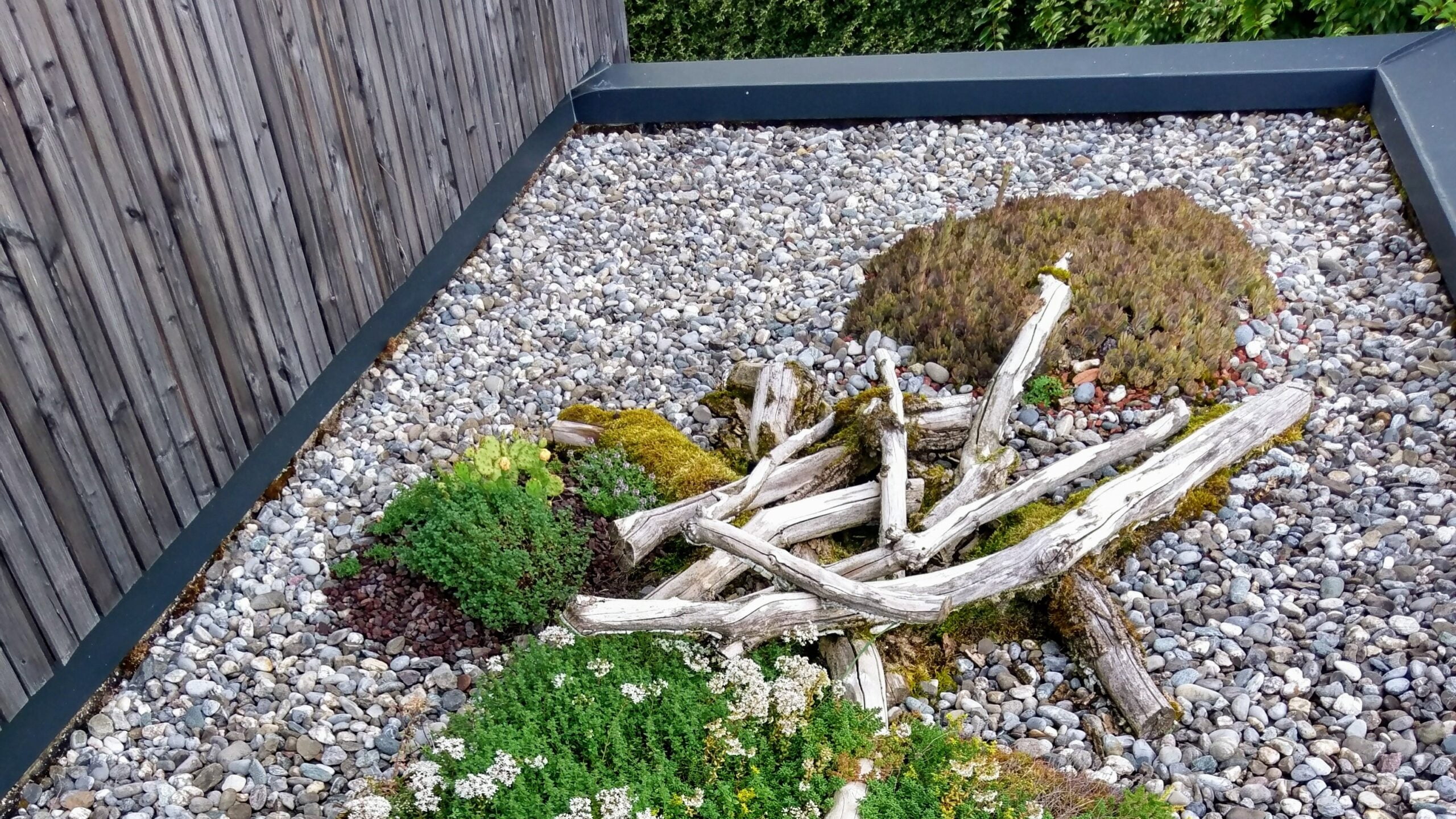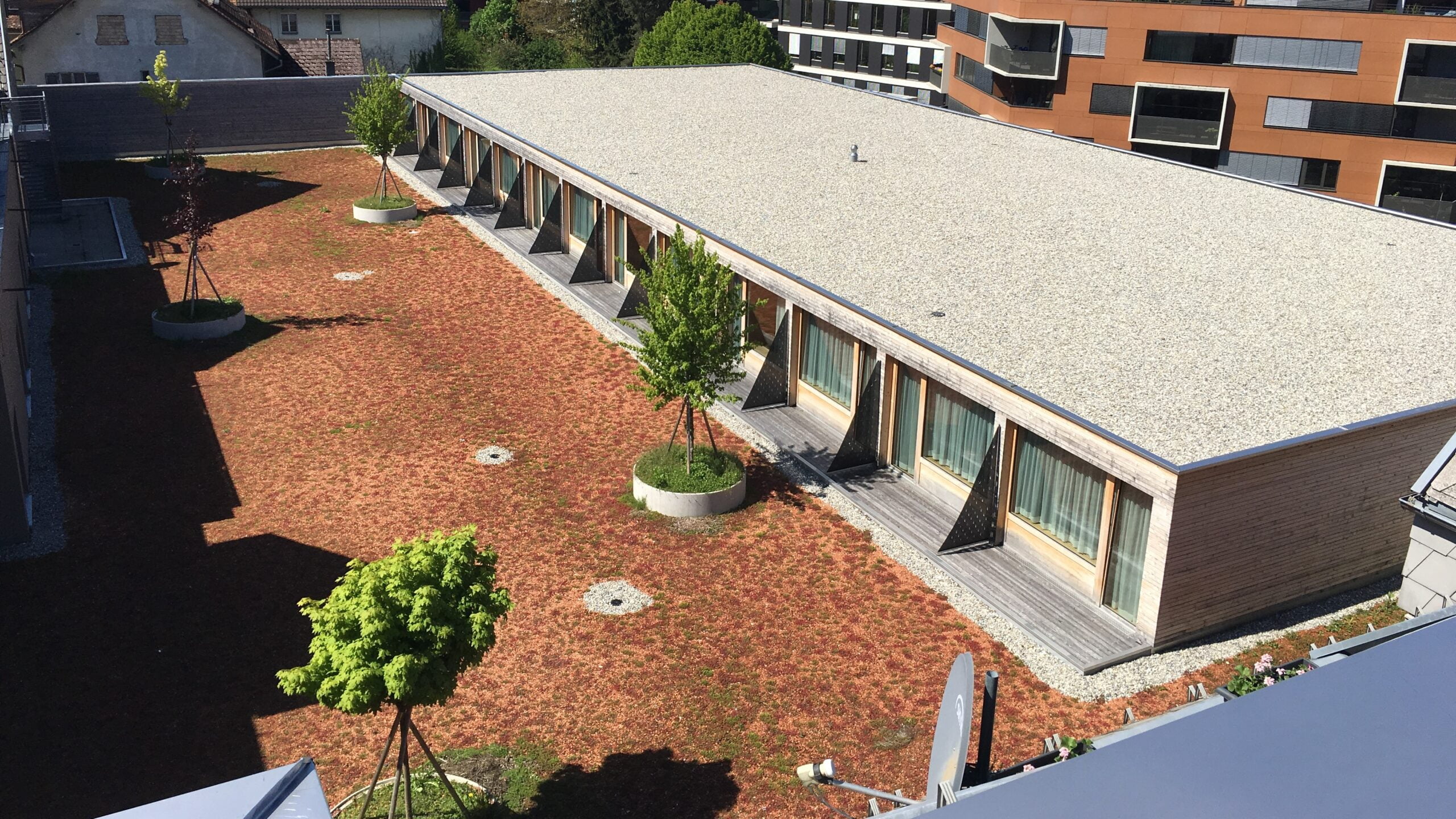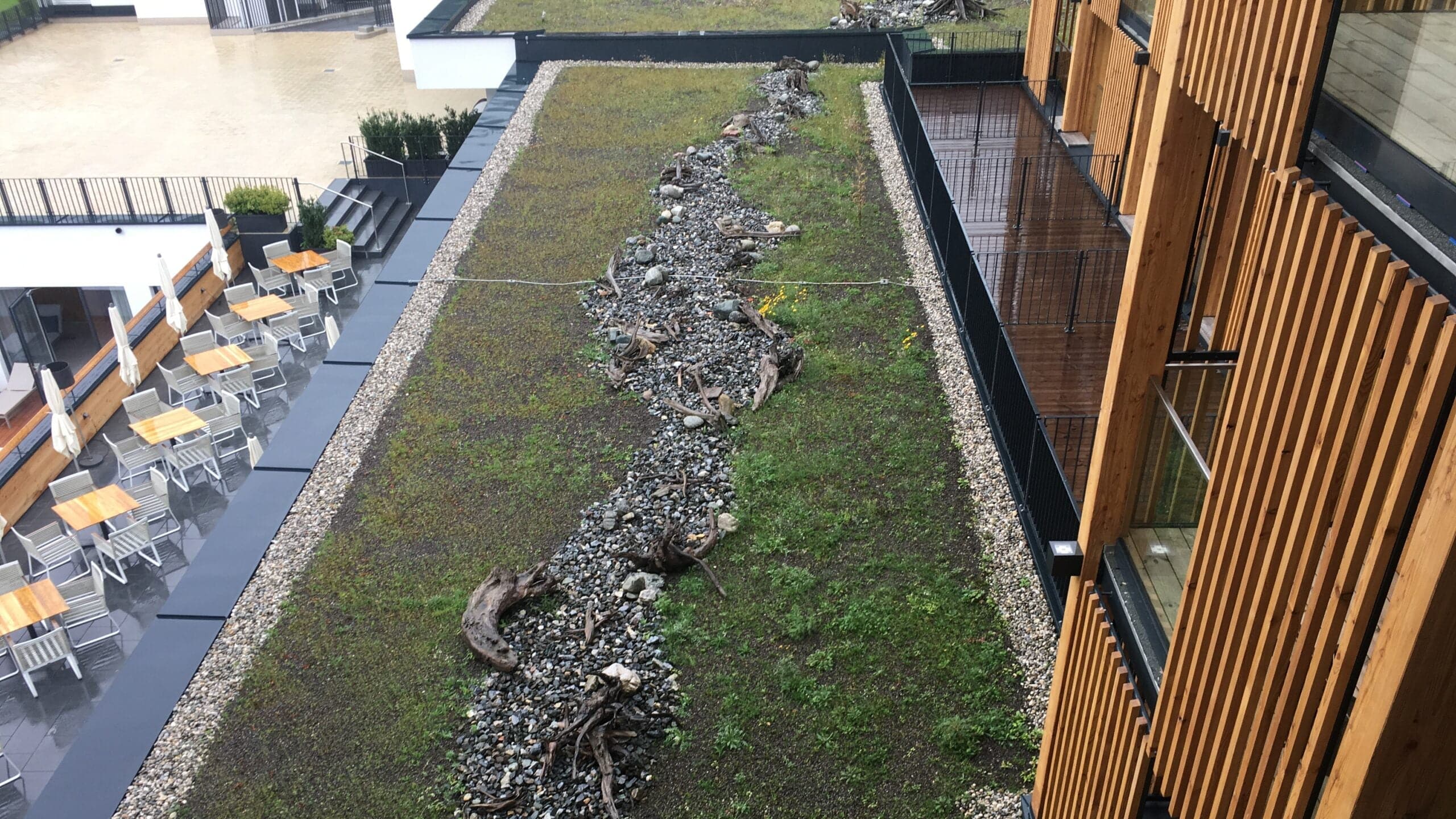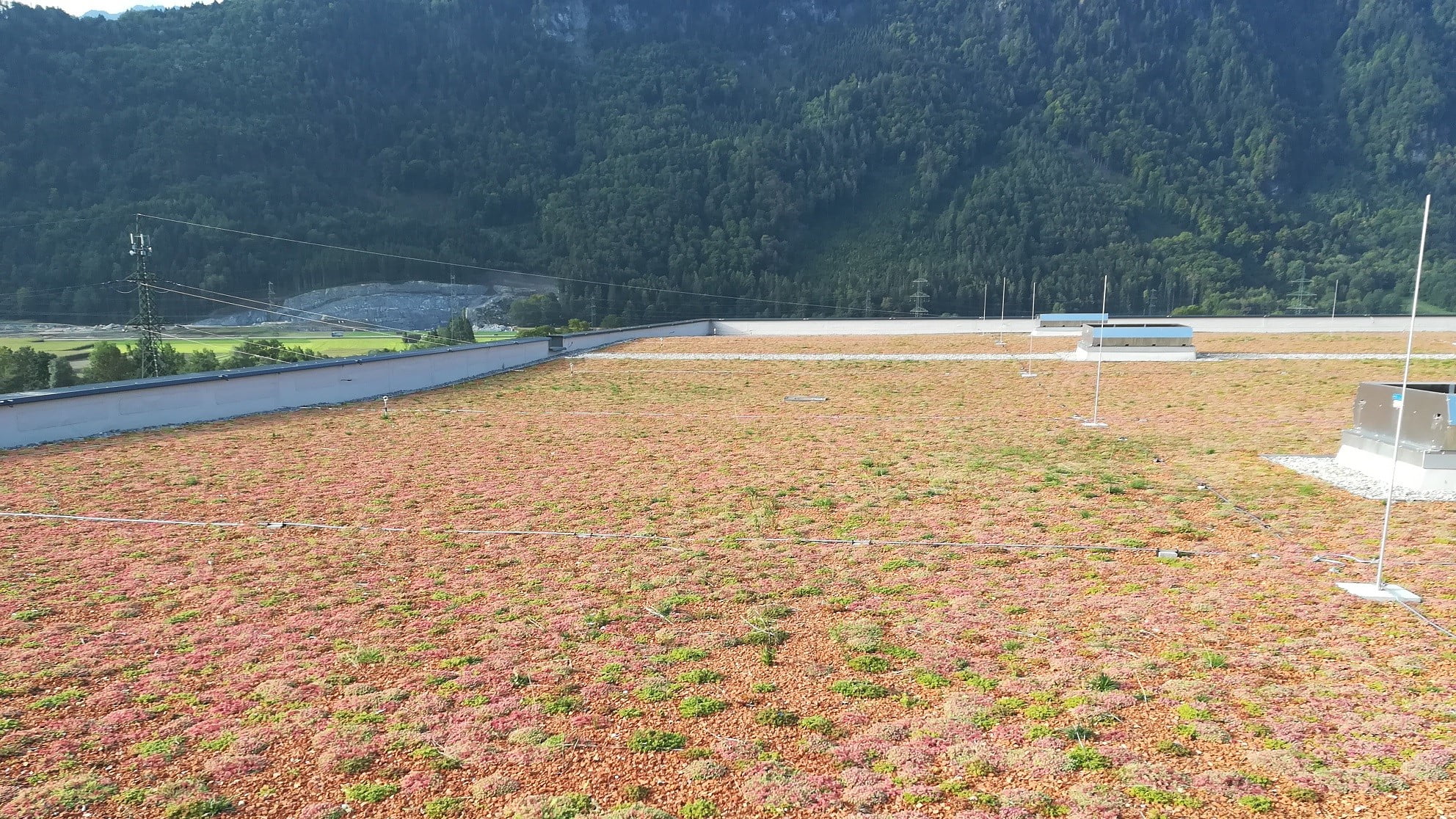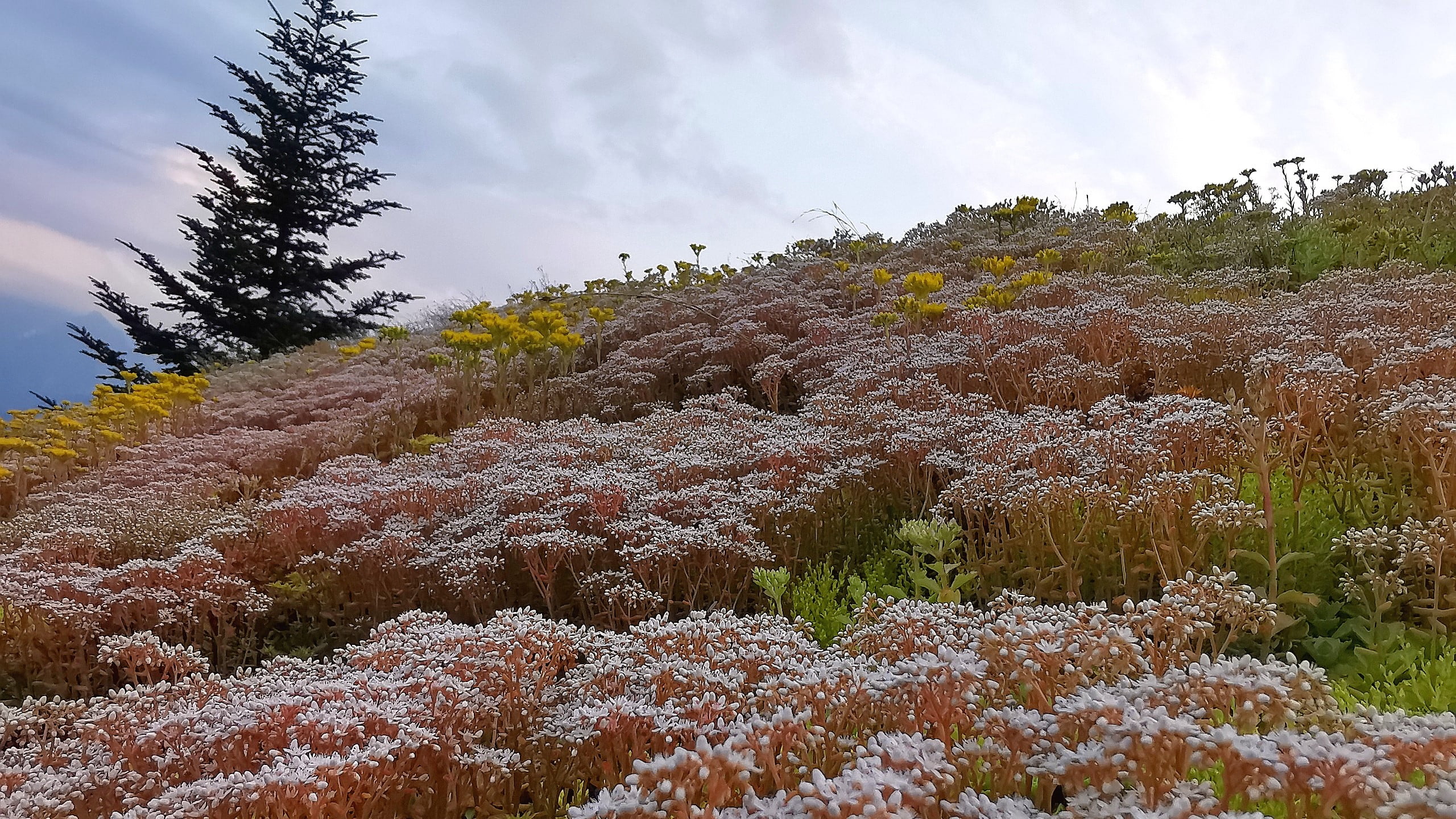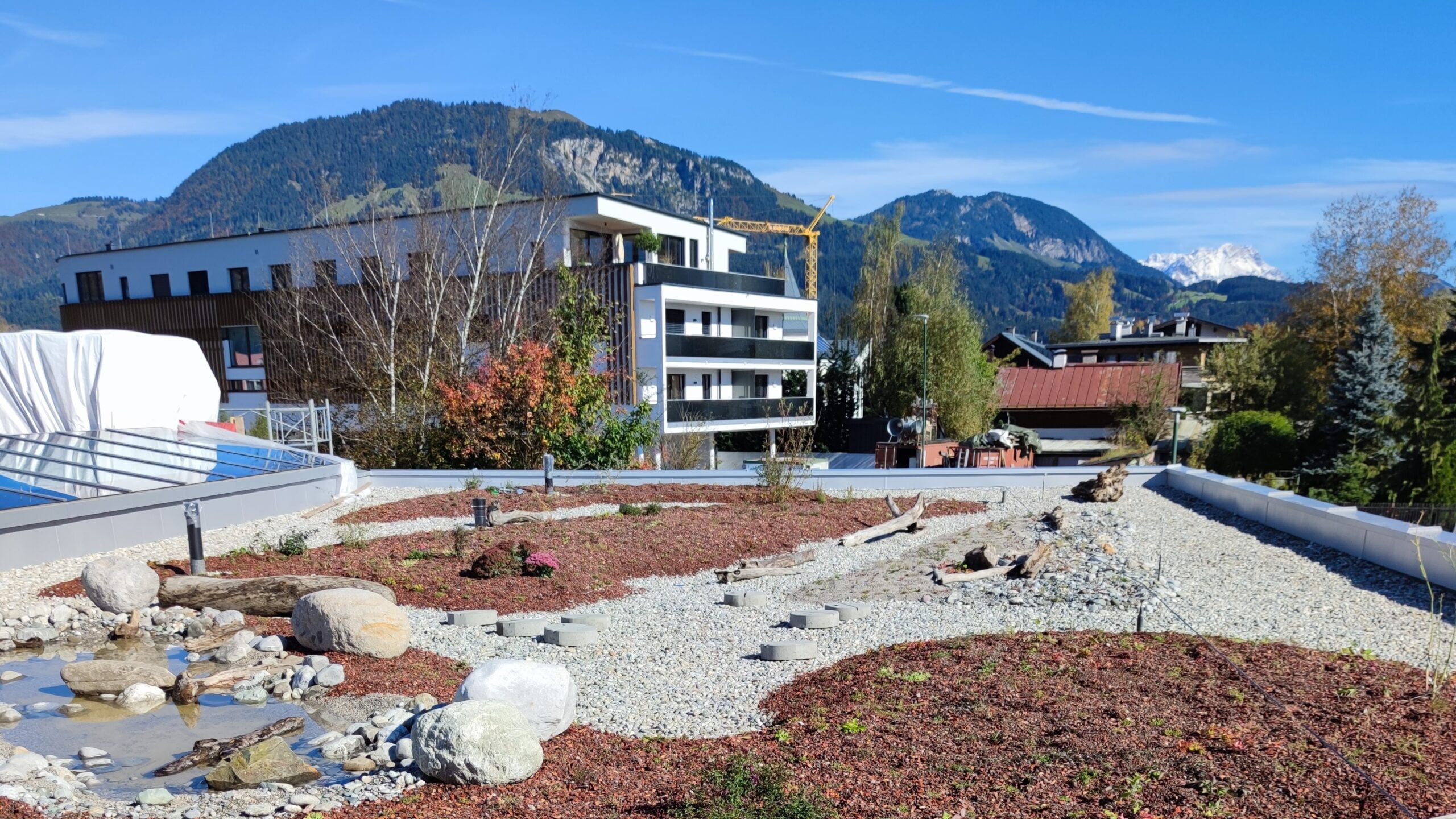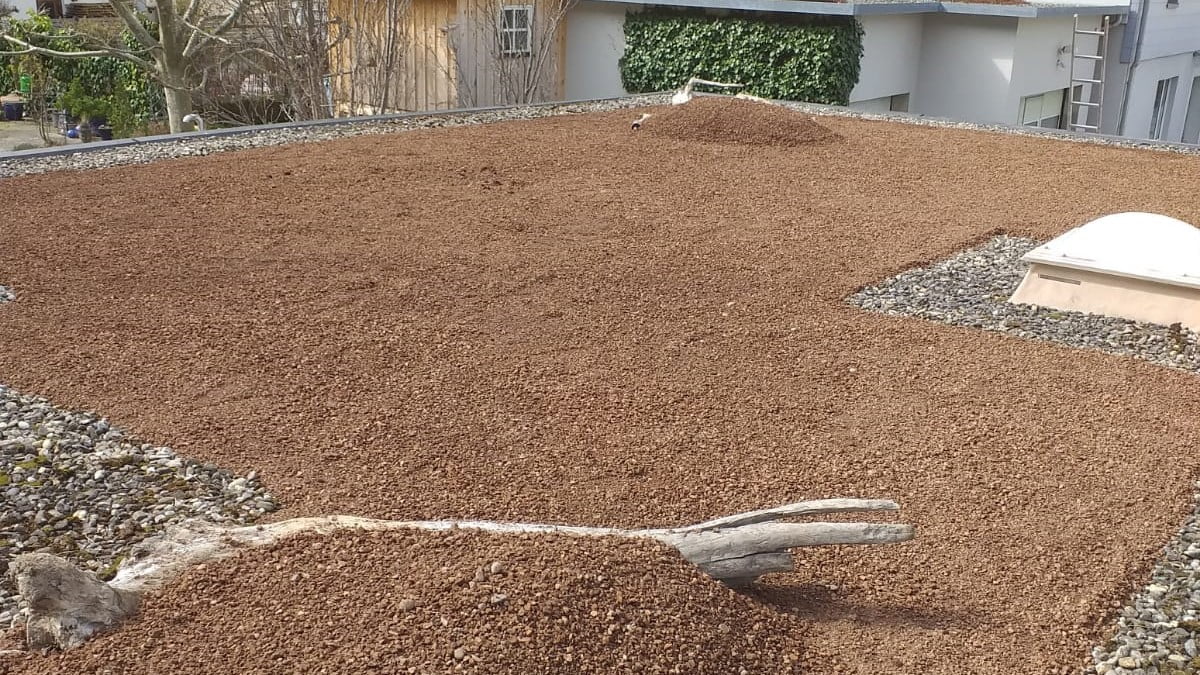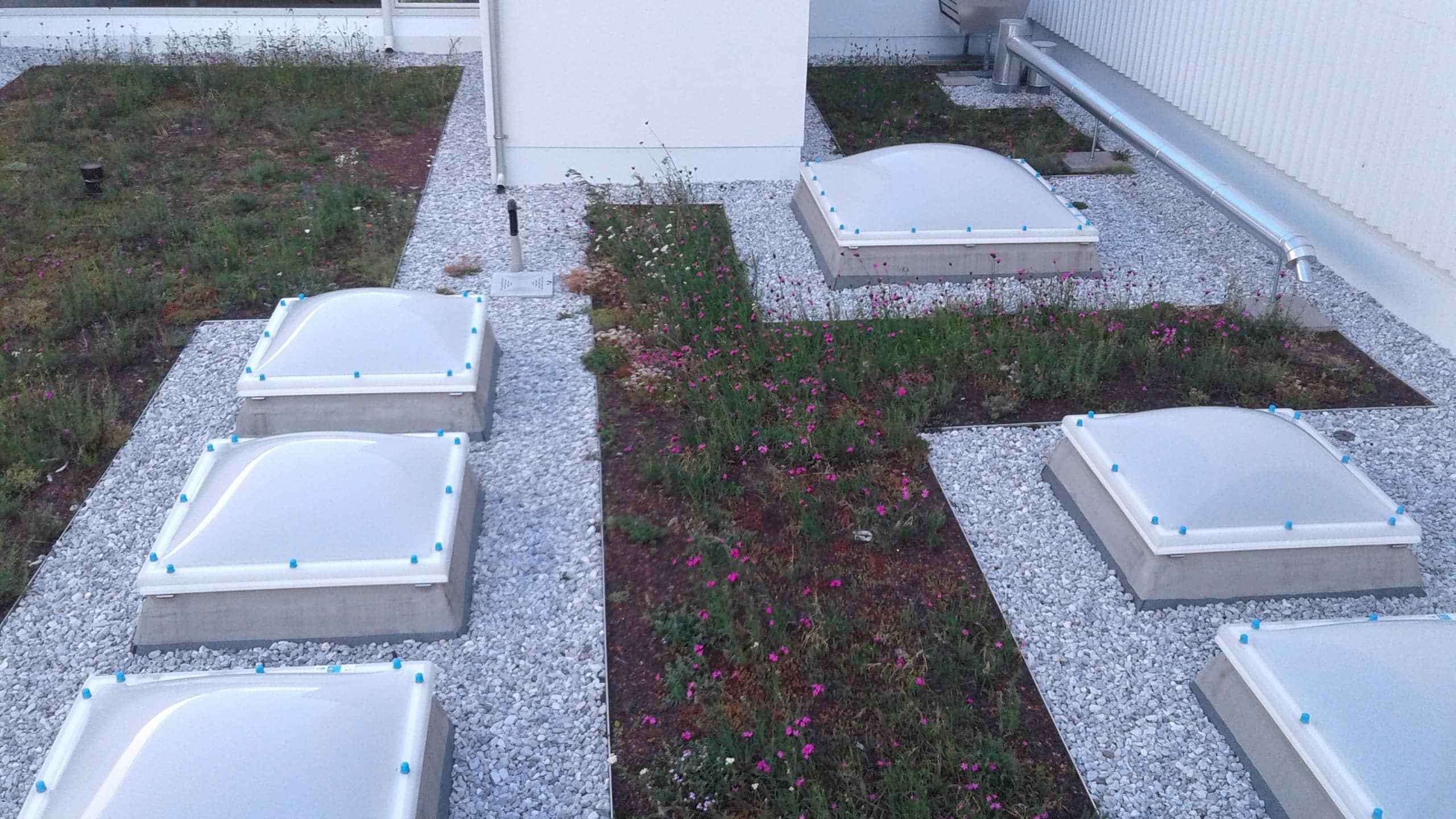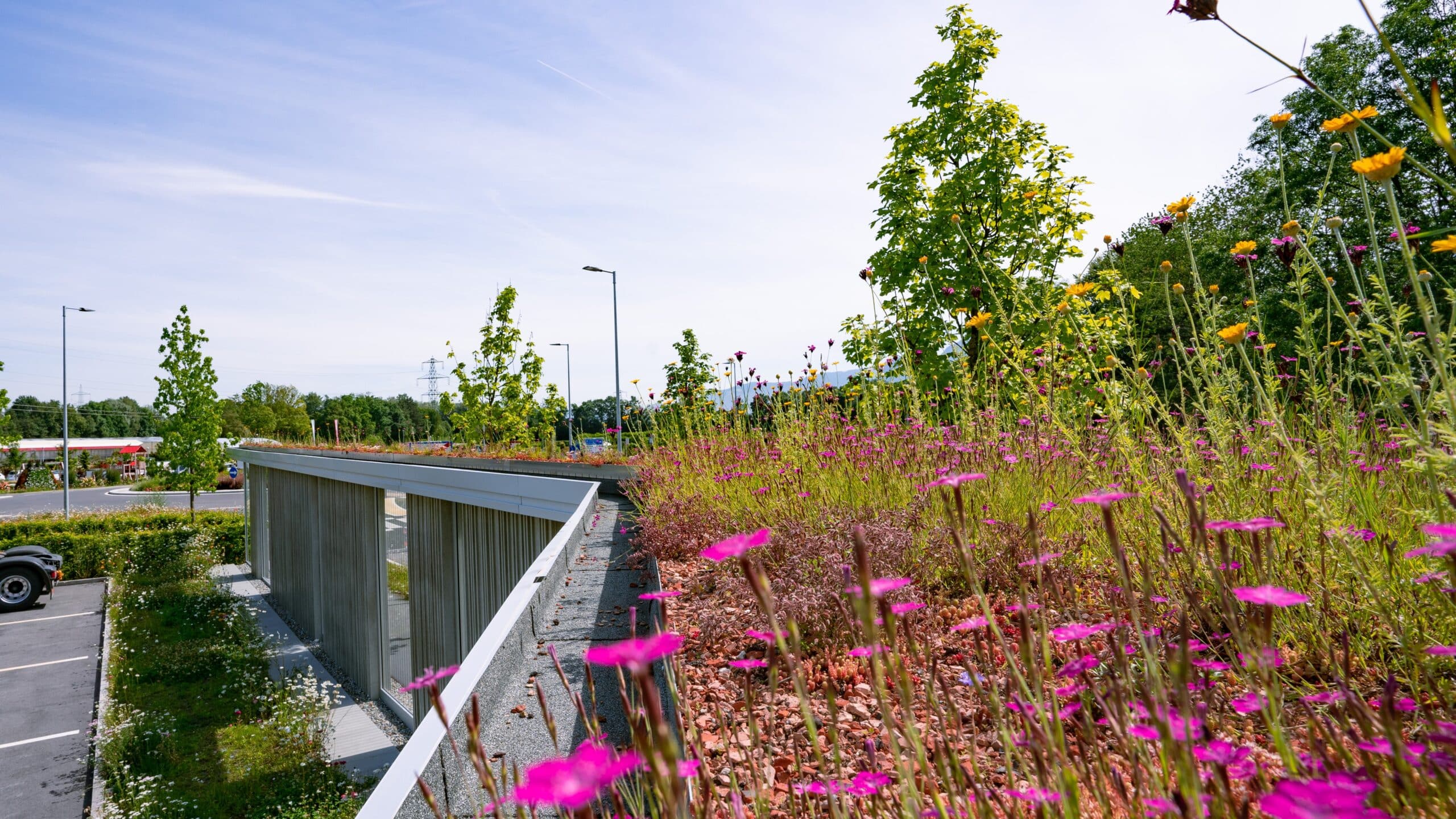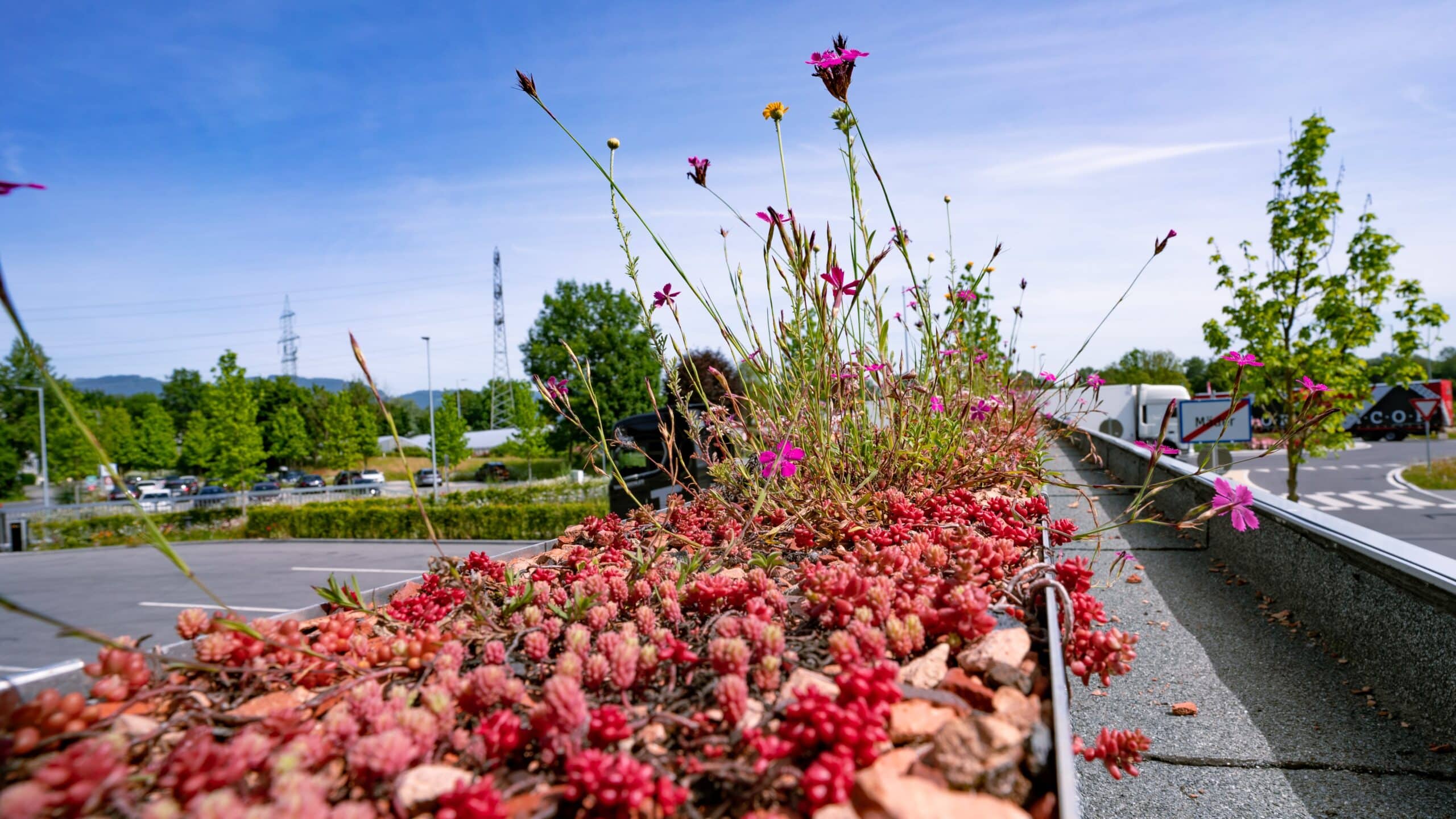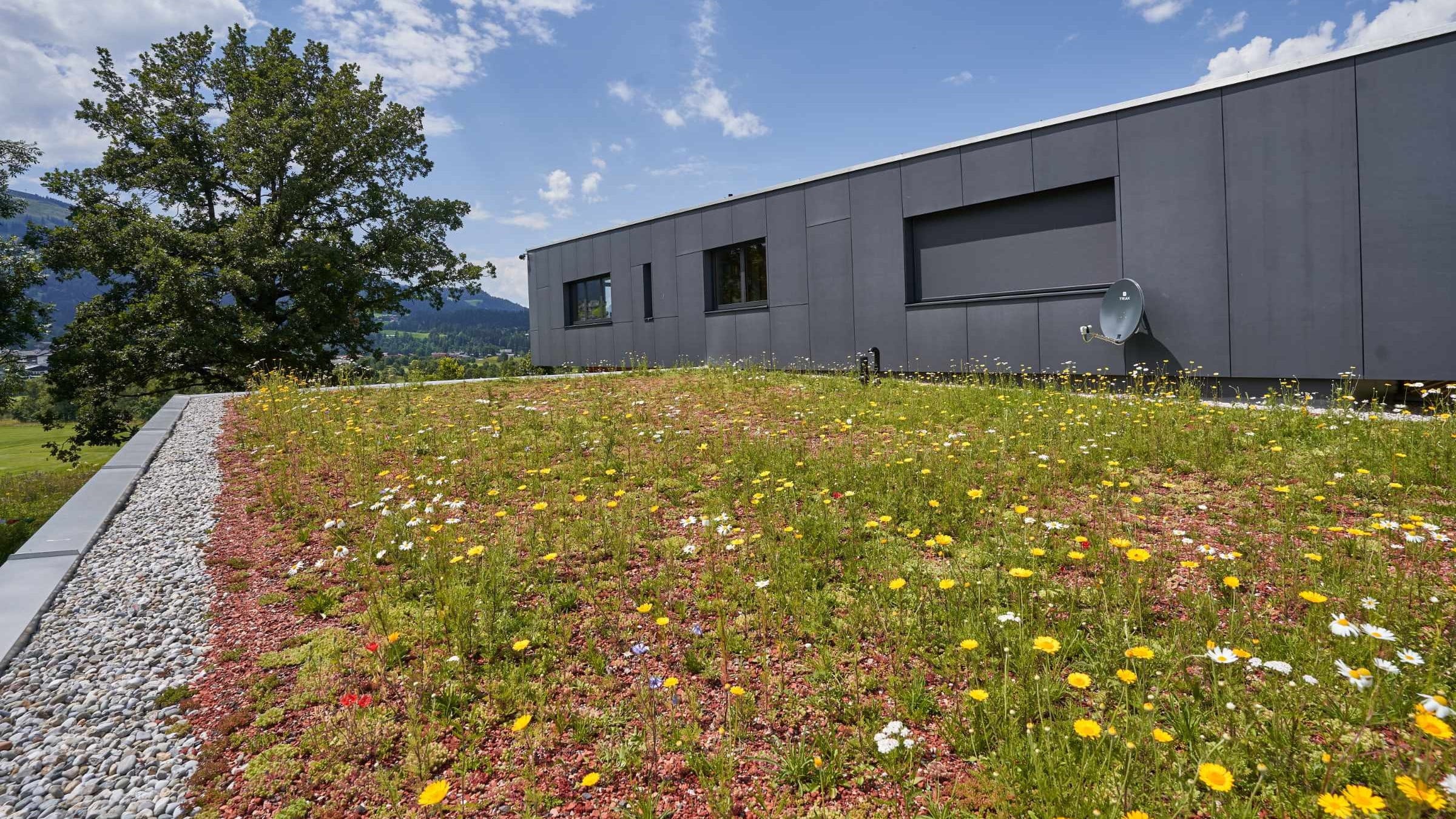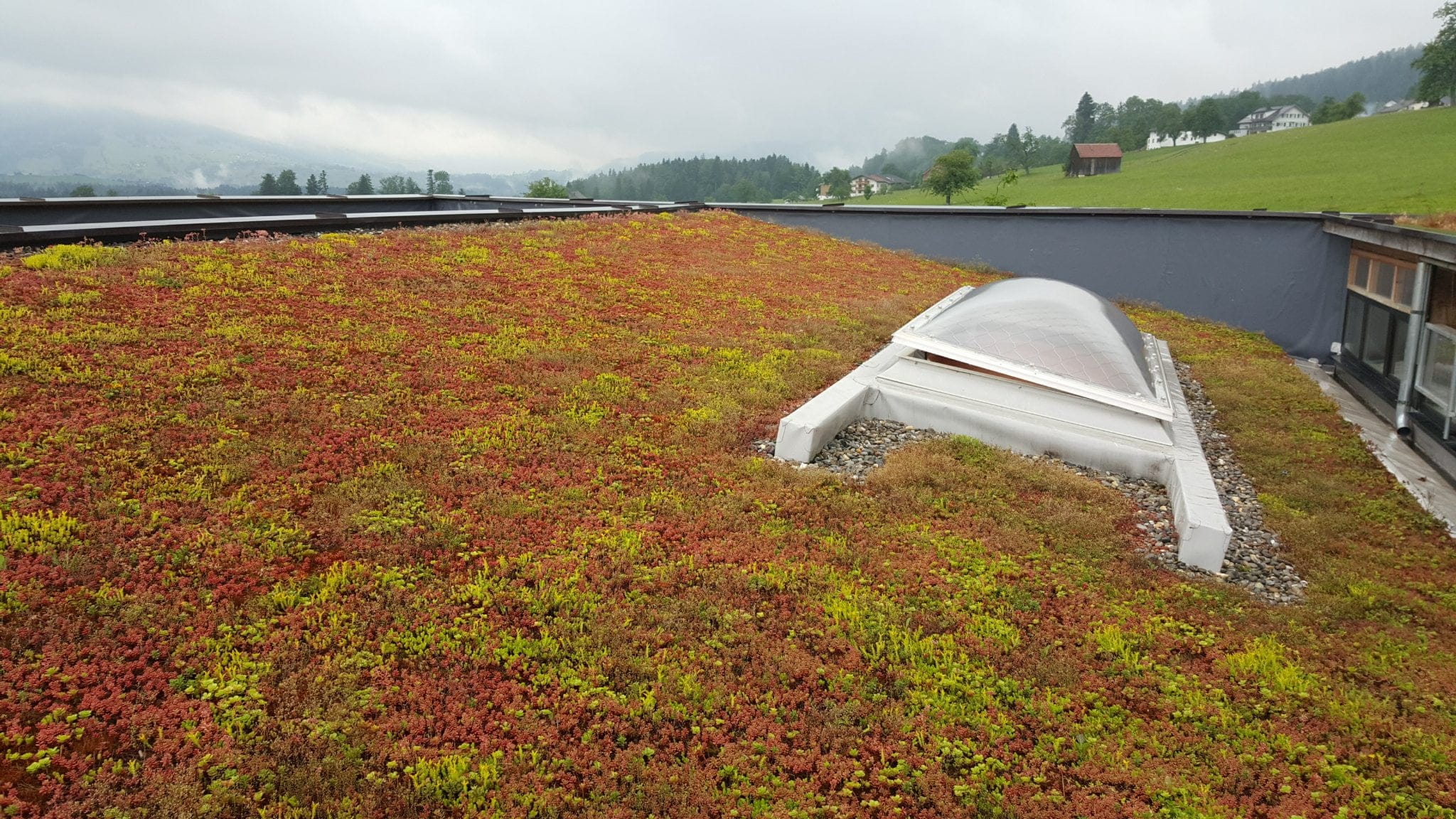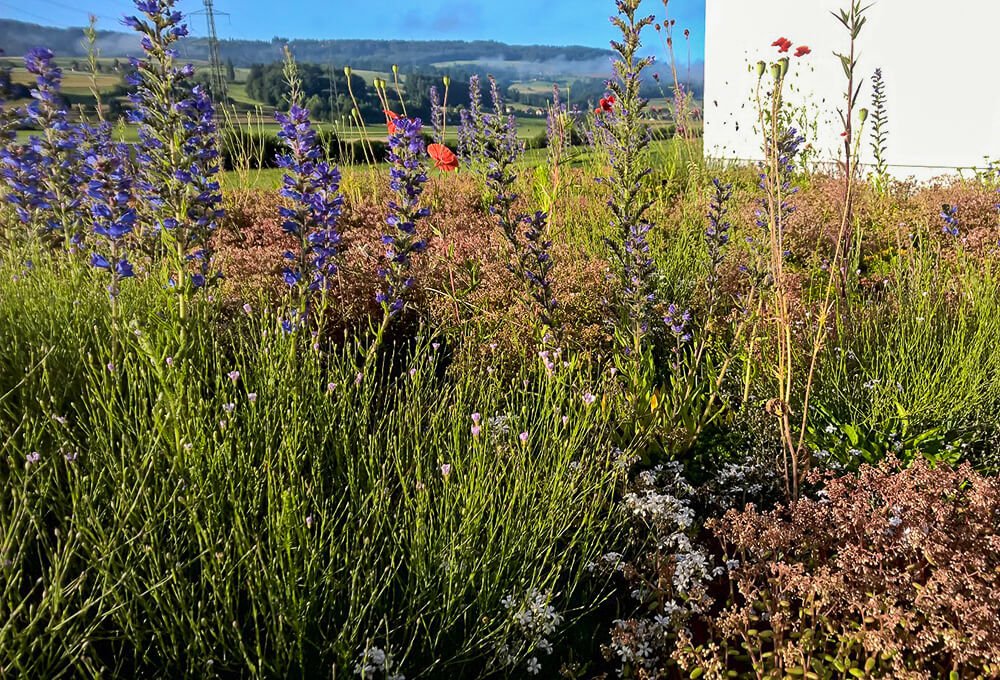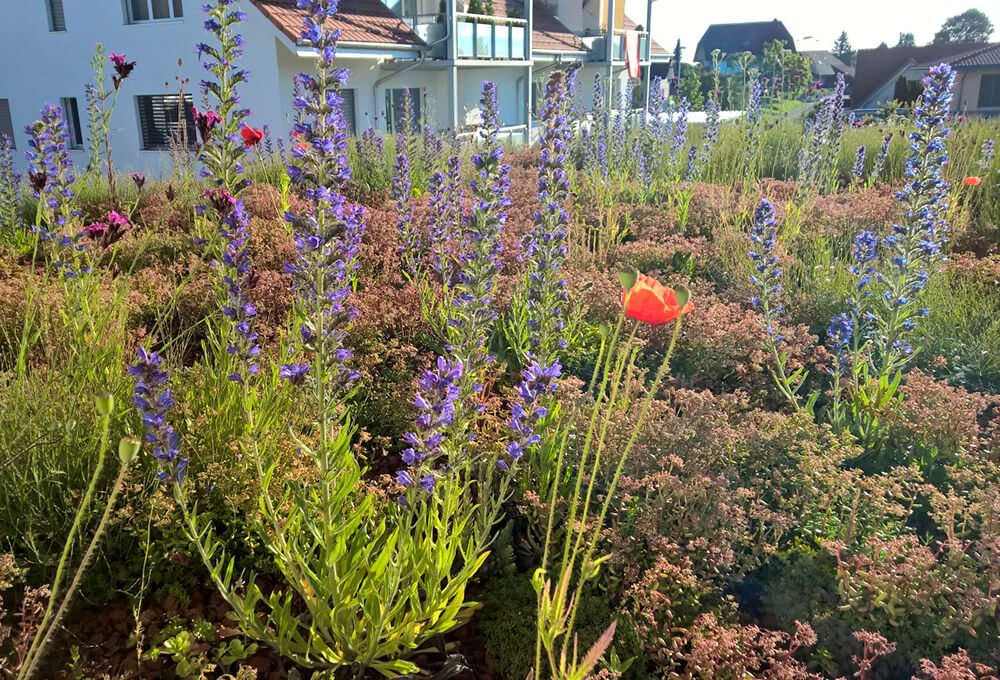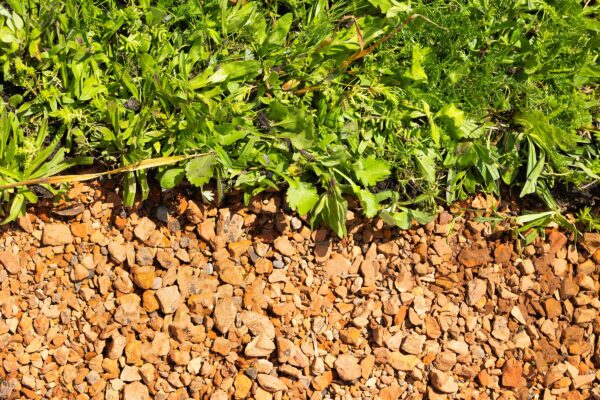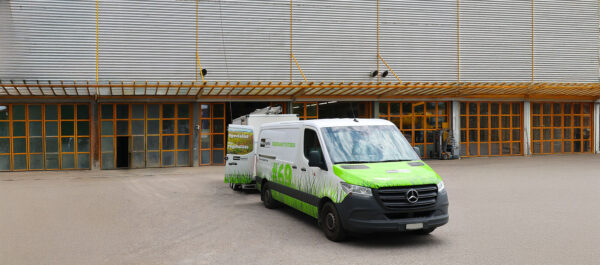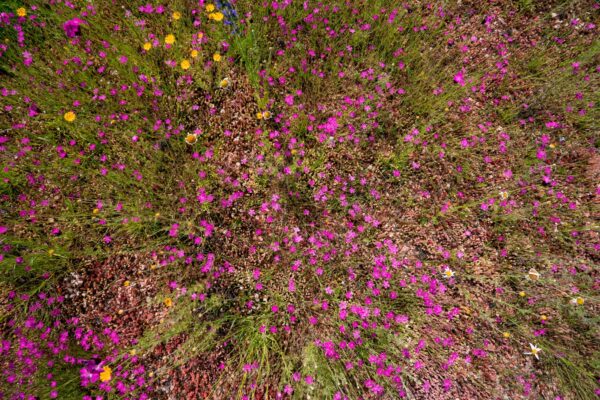Home / Suction+Pressure Blowing / Roof greening
Roof greening - We let your roof blossom
Green roofs are becoming more and more important due to increasing land sealing, as they replace lost natural areas on roofs. A green roof not only contributes to the climate regulation of buildings, but also significantly extends the service life of the roof waterproofing. Typically, green roofs consist of hardy, low-growing and low-maintenance wild plants and herbs. We offer you comprehensive advice on extensive and intensive green roofs and ensure that the optimum substrate is applied to your roof safely and efficiently.
Advantages of a green roof
-
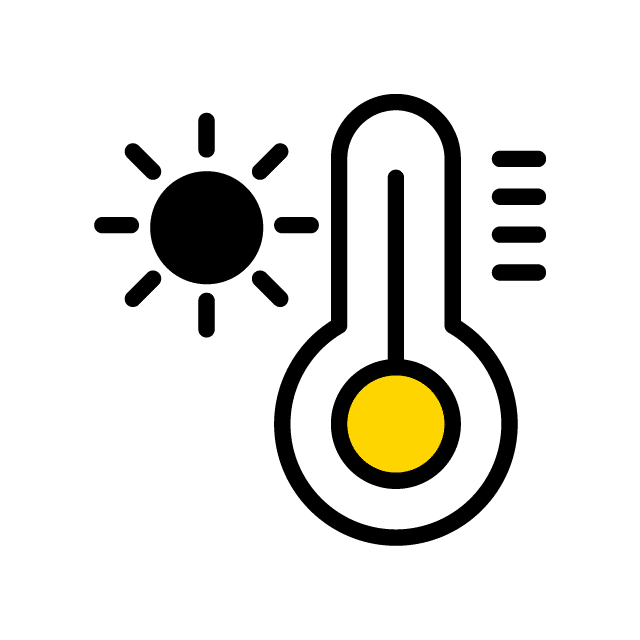
Protection from heat
-
Gravel and concrete roofs store large amounts of heat in summer, causing the rooms below to heat up considerably and incurring high cooling costs. A green roof acts as effective heat protection, regulating the temperature in the building and reducing energy costs. It also helps to reduce the urban heat island effect and improves the local microclimate.
-

Habitat
-
Green roofs provide additional habitats for people and animals. They are not only a visual highlight, but also provide valuable food and shelter for birds, wild bees, butterflies and ground beetles.
-

Backing from
Rainwater -
Thanks to its high water absorption capacity, a green roof can store up to 90 % of precipitation and then releases it back into the natural water cycle through evaporation.
-

Longer service life
the roof waterproofing -
Weather influences such as hail, snow, extreme temperature differences and UV radiation cause the roof waterproofing to be stressed more quickly and age more rapidly. A green roof offers additional protection and can double the service life of the waterproofing.
-

Aesthetics and added value
-
Improves the appearance of the building and increases the property value.
Gravel and concrete roofs store large amounts of heat in summer, causing the rooms below to heat up considerably and incurring high cooling costs. A green roof acts as effective heat protection, regulating the temperature in the building and reducing energy costs. It also helps to reduce the urban heat island effect and improves the local microclimate.
Green roofs provide additional habitats for people and animals. They are not only a visual highlight, but also provide valuable food and shelter for birds, wild bees, butterflies and ground beetles.
Thanks to its high water absorption capacity, a green roof can store up to 90 % of precipitation and then releases it back into the natural water cycle through evaporation.
Weather influences such as hail, snow, extreme temperature differences and UV radiation cause the roof waterproofing to be stressed more quickly and age more rapidly. A green roof offers additional protection and can double the service life of the waterproofing.
Improves the appearance of the building and increases the property value.
Structure of a green roof
The structure of a green roof consists of several layers, which together ensure a functional and sustainable green roof. We also offer alternative construction variants to meet the specific requirements of your project. Our team will be happy to advise you on choosing the right system for your green roof.
Greening
In the case of extensive greening, usually consists of low-maintenance and hardy plant species. For intensive greening, perennials, shrubs and even trees can be planted.
More about the Difference between extensive and intensive greening.
Brick substrate
Forms the nutrient base and anchorage for the plants. Our substrate is made from recycled roof tiles - find out more at this link.
Filter fleece
Prevents substrate particles from being washed into the drainage layer.
Drainage/water storage elements
Ensures the drainage of excess water and stores a water reserve for the plants.
Root protection fleece
Prevents plant roots from penetrating the roof waterproofing.
Roof waterproofing
Protects the roof structure from water ingress.
Roof structure
Basis for the subsequent layers.
Extensive green roofing and intensive green roofing, that's the difference
Extensive green roofs and intensive green roofs differ mainly in terms of the maintenance required and the height of the structure. Intensive green roofs, also known as roof gardens, are more elaborate and include plants such as perennials, shrubs and even trees. They require regular watering and care. Extensive green roofs, on the other hand, are designed close to nature, are low-maintenance and require no additional watering. They use hardy plants such as sedum plants and herbs. At Weiss+Appetito, we offer both types of greenery and adapt them flexibly to your specific requirements.
Our roof tile substrate: Roof Green Plus
Our substrate is made from recycled, broken roof tiles and enriched with compost. By recycling old roof tiles that would otherwise go to landfill, we actively contribute to environmental protection. The tiles are characterized by a high water retention value and excellent drainage properties, which creates ideal conditions for vegetation. The grain size used is 4/16 m. Click here for a Video of brick breaking.
Roof greening with photovoltaics;
the winning combination
In summer, a conventional flat roof can heat up to 80 °C, whereas the temperature on green roofs rarely rises above 35 °C. As the efficiency of photovoltaic systems decreases at higher temperatures, a system on a green roof works more efficiently than on an uncovered roof.
Frequently asked questions
How long does a green roof last compared to other roof types?
A green roof can significantly extend the lifespan of your roof, especially compared to gravel roofs, which normally have a lifespan of around 10-15 years. The green roof protects the roof cladding from extreme weather conditions and UV radiation, making it less likely to become brittle and crack. Thanks to this protective effect, green roofs can achieve a service life of up to 40 years or more.
How high is the additional weight load due to a green roof?
Depending on the layer height (8-10 cm), an extensive green roof brings an additional load of around 60-150 kg per square meter onto the roof when saturated with water. This is comparable to the load from conventional roof graveling, which weighs around 100 kg per square meter. With intensive greening with higher layer structures, however, the load can be up to 400 kg per square meter. In any case, you should have the load-bearing capacity of your roof checked by an architect or structural engineer.
Can green roofs be combined with rainwater harvesting?
Yes, green roofs and rainwater harvesting can be perfectly combined. Green roofs retain around 50-90 % of annual rainfall, while the excess water can be fed into modern rainwater harvesting systems. The water is filtered through the vegetation and substrate layer, which filters out dust, particles and pollutants. The water obtained in this way is ideal for use as service water, for example for watering the garden. We recommend the support of a specialized company for planning.
Is there a risk of roots damaging the roof cladding?
Modern green roofs are optimally protected by the use of special root protection membranes. The fear that plant roots could penetrate the roof cladding and cause damage is long outdated. With today's technologies, the risk of root damage can be effectively prevented.
How can the service life of the roof waterproofing be extended with a green roof?
Weather influences such as hail, snow, extreme temperature differences and UV radiation cause the roof waterproofing to be stressed more quickly and age more rapidly. A green roof offers additional protection and can extend the service life of the waterproofing by up to twice as much.
When and how does the appearance of a green roof change over the course of the year?
The appearance of a green roof changes significantly depending on the plant species and season. Mixtures of herbs, grasses and sedum create a natural, varied look. Sedum plants flower particularly intensively from May to June, displaying bright yellow and reddish hues, while green and dark red colors dominate during the remaining months. Grasses are a vibrant green during the growing season, changing to brown during dry periods or in winter.
Discover our green roof projects
Roof greening without waiting? Discover herb roll mats!
Extensive green roofs with Hydroseeder: a green sign for the future
Extensive vs. intensive green roofs: which solution suits your roof?
Our sites provide services throughout Switzerland and beyond its borders.
Kerzers (Operations Centre)
Weiss+Appetito
Spezialdienste AG
Brüggfeld 15
3216 Ried b. Kerzers
Geneva
Weiss+Appetito
Spezialdienste AG
Route de Peney 147
1214 Vernier GE
Ticino
Weiss+Appetito
Spezialdienste AG
c/o Temma Sagl
Via Mimosa 8
6648 Minusio/TI
Niederstetten
Weiss+Appetito Special Services AG
Suction+Pressure Blowing
Salenstrasse 25
9249 Niederstetten
Sierentz
Weiss+Appetito SAS
15b rue du capitaine Dreyfus
F-68510 Sierentz
Lyon
Weiss+Appetito SAS
Rue de l'Artisanat
F-01390 Saint-André-de-Corcy
Straubenhardt
Wagner GmbH & Co. KG
Humboldtstrasse 25
D-75334 Straubenhardt
Herbolzheim
Wagner GmbH & Co. KG
Breisgauallee 24
D-79336 Herbolzheim
